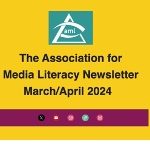Why does music make us cry?
Media literacy’s great gift to society—a hallmark of the work of Marshall McLuhan and Ted Carpenter—is its willingness to take popular culture seriously; to expose it to the same rigours of critical thinking that have been exercised on ‘great’ works such as the Christian Bible or Hamlet.
Malcolm Gladwell extends this respectful analysis in his The King of Tears episode of the Revisionist History podcast. He posits a great inquiry question: Why does some music make us cry? He then examines country, rock & roll and an operatic adaptation of Anne Frank’s diary to look for answers. His conclusion: music that makes us cry combines melancholy with detail and genuine feelings.

The podcast is a rich media literacy discussion opportunity.
- Gladwell’s books have sometimes been criticized for promoting incorrect ideas, for coming to inaccurate conclusions, or for ignoring relevant points of view. Students might be asked if they think this podcast is guilty of those errors and what might have been done differently.
- Students might identify songs that have affected them strongly and test Gladwell’s conclusion in light of their own experiences. They might be invited to suggest other significant ingredients that contribute to a song’s high emotional quotient.
- Students might launch an inquiry wherein they poll groups to discover the most emotional songs among their local populations, or among subsets of those populations, e.g., females of differing ages, married vs. single people, gamers vs. non-gamers, etc. These surveys might be conducted face-to-face and/or via social media.
- They might research how people use emotional songs, i.e., what circumstances motivate them to seek them out, how they listen to them, what other activities accompany their listening, etc. Do they share their listening, e.g., with friends at home or via video conferencing, or on social media, or do they keep their experiences private?
- Students’ culminating tasks could be reports on their own responses and uses of emotional music or their research findings. Some might create emotional songs that contain the key ingredients.
Many thanks to Malcolm Gladwell for modeling quality thinking and research skills and for providing media literacy educators with a rich resource.
(These ideas can be adapted to both secondary and elementary classrooms. – ed.)




